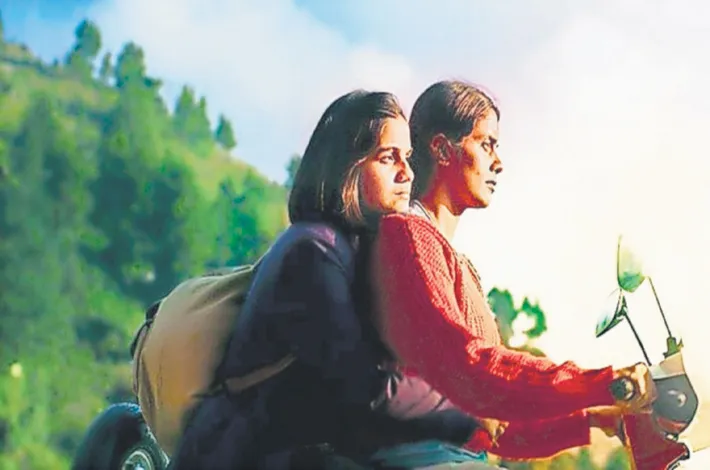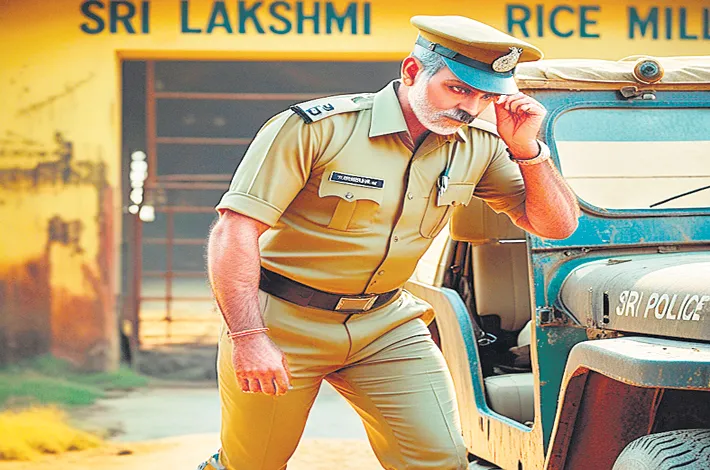Nuanced & moving portrait of girlhood
21-12-2024 01:33:01 AM

- Title: Girls Will Be Girls
- Director: Shuchi Talati
- Cast: Preeti Panigrahi, Kani Kusruti, Kesav Binoy Kiron, Kajol Chugh, Devika Shahani
- Where: Streaming on Prime Video
- Rating: HHH
This coming-of-age film by Writer-director Shuchi Talati is a thoughtful, tightly crafted exploration of girlhood, where the personal and the political (societal norms and power dynamics) simmer under a cloak of delicate intimacy. Set in the cloistered environment of a boarding school, the film juxtaposes Mira’s (Preeti Panigrahi) rigorous adherence to institutional excellence with the messy, unregulated chaos of growing up. A badge-wearing prefect by day, Mira soon finds her tightly woven life unravelling as she navigates the pangs of first love and a volatile home front.
The film’s greatest strength lies in its deft character work, particularly in Mira’s layered relationship with her mother, Anila (Kani Kusruti). Anila is a fascinating character study—a figure whose protectiveness is tinged with envy and whose maternal instinct often veers into emotional sabotage. Their relationship feels universally recognizable and unnervingly specific, and the film milks their tension for all it’s worth. Panigrahi and Kusruti’s chemistry is charged and messy, grounding the film even when the plot edges toward melodrama.
Mira’s budding romance with her classmate Sri (Kesav Binoy Kiron) offers a tender counterpoint filled with moments of stolen glances and naive ardour. Talati’s direction shines here, capturing the sensory overload of young love with astonishing precision: the electricity of a first touch, the unbearable lightness of shared secrets. But what’s most striking is how Mira’s awakening isn’t framed as a rebellion against her mother or the school’s puritanical rules but as a quiet assertion of her own identity.
The film’s aesthetic choices amplify its intimacy. Shot in a snug 4:3 aspect ratio, Girls Will Be Girls feels almost confessional, pulling viewers into Mira’s tightly controlled world. Talati’s attention to detail—clutching hands, stolen glances—gives the film a tactile quality that’s as evocative as it is cinematic. Preeti Panigrahi’s performance, which earned her the Sundance Dramatic Special Jury Award, is a revelation. She imbues Mira with vulnerability and quiet defiance, embodying a girl caught between the suffocating expectations of her world and the tantalizing possibility of escape.
While Mira’s journey is rendered with remarkable depth and sensitivity, the film falters when it shifts focus to some of its broader dynamics. Anila’s antagonism, though rooted in the nuanced complexities of her character, occasionally veers into the implausible, threatening to dilute her otherwise compelling presence. Similarly, the narrative’s ambition to juggle themes of coming-of-age, strained familial ties, and societal critique can sometimes feel overstretched. Even the title’s subversive nod to the “boys will be boys” narrative, though intriguing, does not feel fully realized within the story’s broader context.
Still, these quibbles pale in comparison to the film’s overarching achievements. Talati crafts a bildungsroman that is both deeply personal and strikingly universal, excavating the unhealed wounds of girlhood with an unflinching gaze. Mira’s journey isn’t just about discovering who she is but grappling with the ghosts of who her mother once was.
Ultimately, the film doesn’t settle for easy answers. It’s a slow burn, richly textured and unapologetically messy, much like the process of growing up itself.








